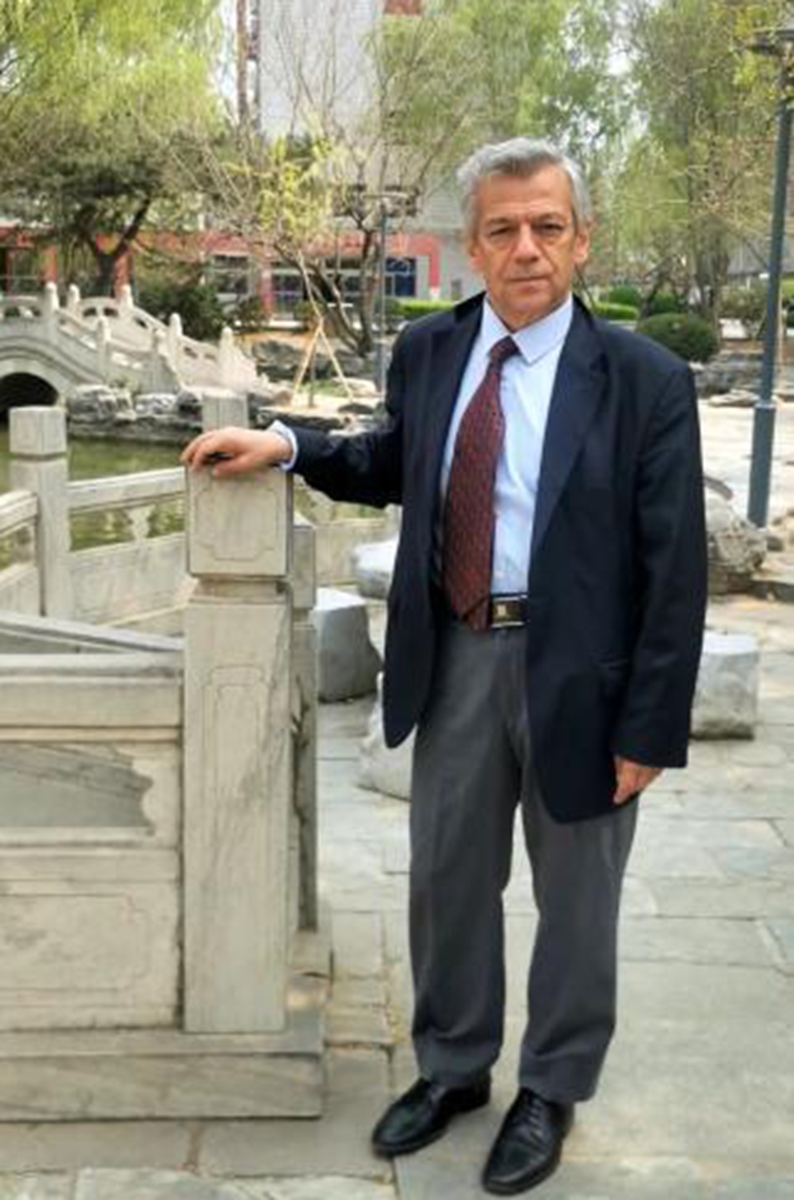
Tools used in Chinese calligraphy, some of the most typical symbols of traditional Chinese culture Photo: VCG
Unlike the very mature and advanced studies of China and Chinese culture in Europe, for sinologist Eyup Saritas from Turkey, the country, though it has a long and friendly relationship with China thanks to the world-famous Silk Road, still stands at a much "weaker" point in sinology.
Having arrived in China decades ago, Saritas has been able to witness the country's rapid development. In a recent interview with the Global Times, he recapped his career in sinology and offered his views on understanding China, which he thinks should begin with a basic understanding of traditional Chinese culture and philosophy.
After graduating from Ankara University in Turkey in 1991, the Turkish sinologist became obsessed with China and Chinese culture. More than 30 years later, the then sinology student is now a professor of Chinese studies at Istanbul University and member at the World Sinology Center established by the Beijing Language and Culture University.
The modern study of Chinese culture in Turkey started late and with the help of a German sinologist. In the 1930s, Ankara University built its first research center dedicated to Chinese culture. From 1937 to 1948, German sinologist Wolfram Eberhard made very important contributions to Turkish sinology during his academic career with the Department of Sinology at Ankara University.
After decades of development, however, the quantity of thorough studies in the field has remained exceedingly restricted in Turkey.
"We can state that the first and second generations of Turkish sinologists largely adopted the ideas of the above-mentioned Western sinologists," Saritas told the Global Times.
"But this should not mean that the future of Turkish sinology will not be better. We must always keep alive our efforts to achieve our hopes that Turkish sinology will reach a certain level," Saritas noted.

Turkish sinologist Eyup Saritas Photo: cnsphoto
Philosophy till todayAccording to US sinologist John King Fairbank, a worldwide transition has been taking place in the field of sinology over the past few decades. Traditionally, sinology focused on regional studies that examine ancient China from a historical perspective.
But today, as sociologists began to get more involved in the field, they added knowledge and research methods that also examined economics, political science, sociology and legal systems, helping form a new path for the study of China.
For Saritas, the above-mentioned ideas are not in conflict but depend on each other.
He noted that he believes it is impossible to understand modern and contemporary China without first understanding traditional China.
Naturally, understanding Confucianism, due to its impact on society, is a good stepping stone.
"Like Chinese characters, which are one of the rare writing systems that have survived from its first day till today without losing any of its value, Confucius philosophy has been able to protect traditional Chinese thought in a lively and effective way without losing any of its philosophical value until today," he said.
It should be noted that Confucian philosophy, which directly addresses the inner world of man, has become a system of ideas and life that will never go out of fashion due to its absolute truth and general validity and its ability to adapt to the way of life of every period, he said.
"And this traditional philosophical system of thinking, which compares the relationship between the state and the citizen to the relationship between father and son, has not been influenced by any other system of thought throughout the eras, but has deeply influenced the worlds of thought of many nations of the Far East," Saritas said.
To better understand the traditional Chinese culture, Saritas earned a master's degree in Contemporary and Classical Chinese at Peking University from 1992 and 1994, and gained more research experience in China by carrying out research on Chinese history and archaeology and the history of sinology at the Beijing Foreign Studies University.
Modernity through traditionWhen he came to China for the first time, Saritas was attracted by the Chinese society of the time. While he said today's Chinese society is more inclusive and diverse and presents international characteristics, he is still very nostalgic when he came to China in the 1990s.
He recalled that there was no internet at that time and people were deeply influenced by traditional ideas and traditional and ancient ways of life could be seen everywhere, just like Beijing's
hutong, the traditional alleys in the city.
At the same time, changes can be "easily seen" in China's modernization, he said.
"In other words, Chinese modernization was not the result of being influenced by other nations, instead, it was achieved by protecting China's own cultural traits and by maintaining traditional lines."
Historically, exchanges between Turkey and China were highly focused along the ancient Silk Road, which can be seen from historical records such as The Great Tang Records on the Western Regions by the eminent Tang Dynasty (618-907) monk Xuanzang.
This is one of the parts of history Saritas is fascinated with. He noted he plans to translate more works about the exchanges between the two nations into Turkish.
"The Tang period, which represents one of the most brilliant periods of Chinese history and culture, can be considered as the period in which China-Turkish cultural relations had the richest content," he noted.





